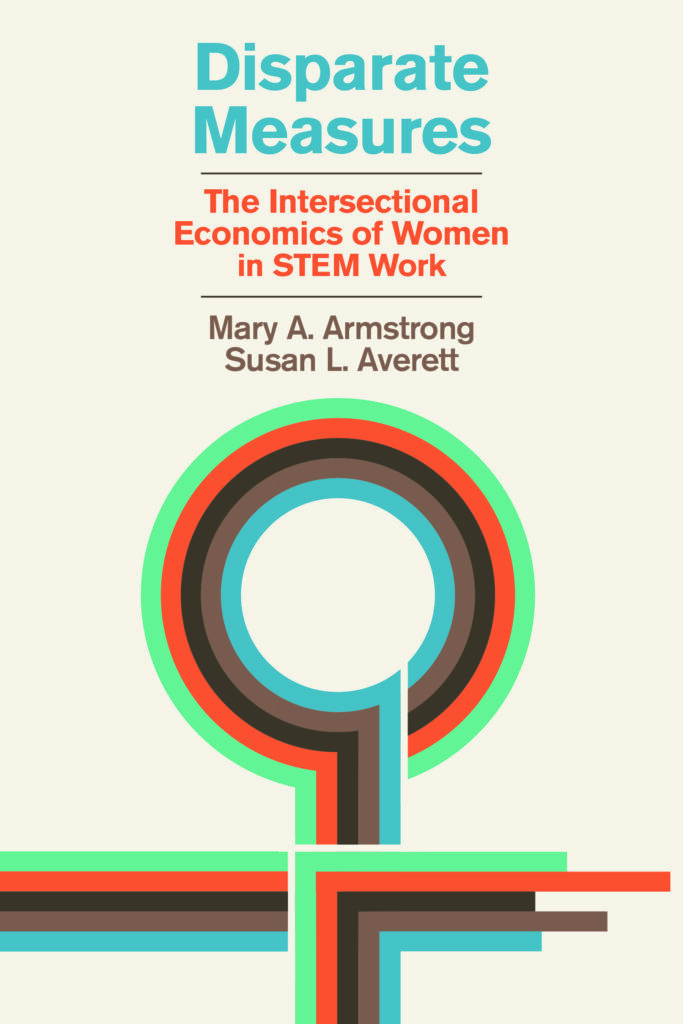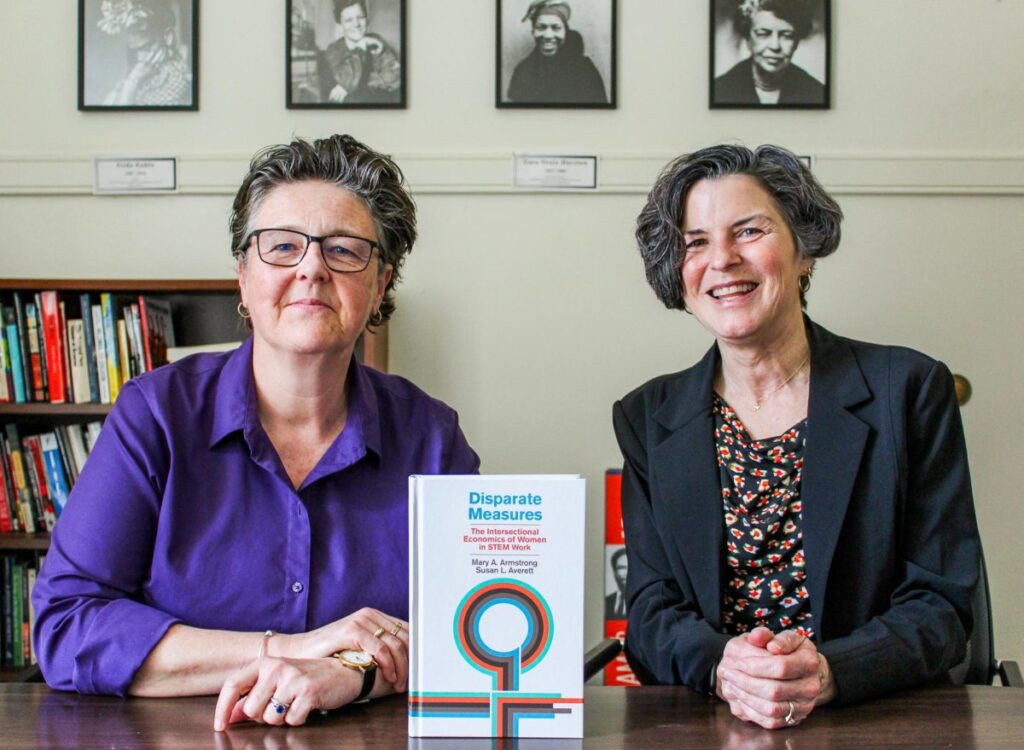
Disparate Measures (MIT Press, 2024)
Disparate Measures: The Intersectional Economics of Women and STEM Work
Coauthored with economist Susan Averett, Dana Professor of Economics, Lafayette College
Disparate Measures challenges the conventional wisdom that a diverse US STEM workforce will bring about economic abundance for the women who participate in it. Combining intersectionality theory and critical data theory with a feminist economic analysis, Disparate Measures offers a multidimensional picture of how diverse women truly fare in US STEM work.
Four case studies prioritize women of color and examine the STEM participation and earnings of Black women, American Indian and Alaska Native women, Asian and Pacific Islander women, and Hispanic women/Latinas. Four additional case studies, foreign-born women, women with disabilities, Queer women, and mothers, illuminate intersections often neglected by the STEM inclusivity literature.
While the promises of STEM work may be convenient for advancing corporate profits and the nationalist project of US economic competitiveness, they do not hold true for diverse women. Disparate Measures illuminates entrenched patterns of economic disadvantage in STEM, calling for a reconsideration of how we conceptualize STEM (in)equity.
REVIEWS OF DISPARATE MEASURES
Shauna Morimoto, Gender & Society, 2025
Shulamit Kahn, Journal of Economic Literature, 2025
Heather Walling Doty, H-NET Reviews in the Humanities and Social Sciences, 2025
Ana Lucia Fonseca, ADVANCE Journal, 2024

Mary A. Armstrong (l) and Susan L. Averett (photo credit: The Lafayette/Austin Carey)
Thanks to my alma mater, The College of the Holy Cross, and Megan Bard for this nice write up on Disparate Measures in the Holy Cross Magazine (Summer 2024).